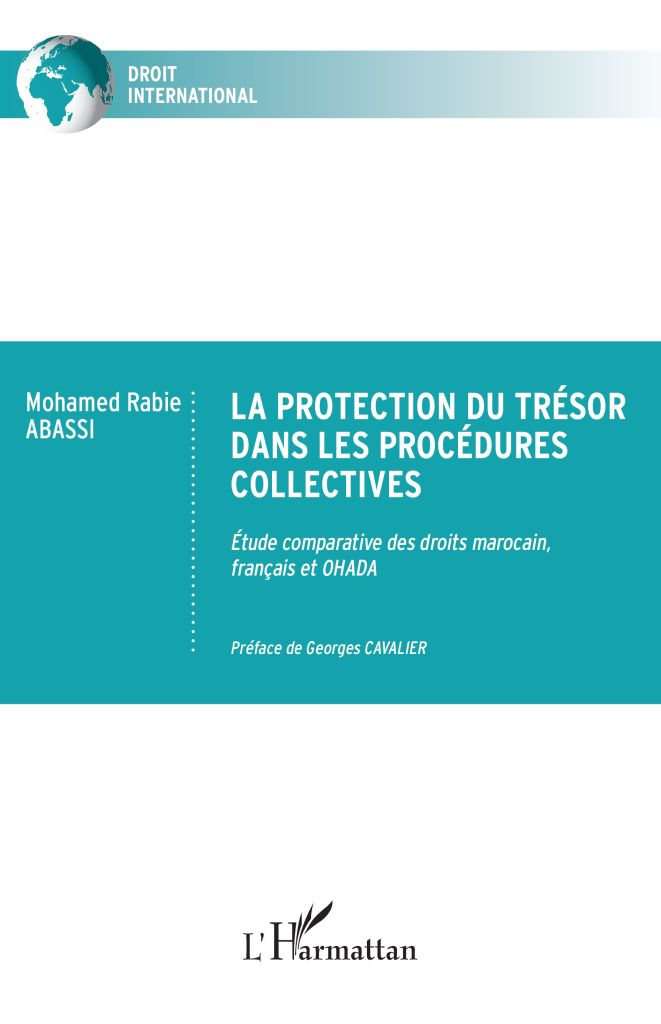
Parution de l'ouvrage OHADA intitulé : « La protection du Trésor dans les procédures collectives : Étude comparative des droits marocain, français et OHADA »
- 04/02/2026
- Laisser un commentaire
Nous avons le plaisir de vous informer de la parution, aux Éditions l'Harmattan, de l'ouvrage intitulé « La protection du Trésor dans les procédures collectives : Étude comparative des droits marocain, français et OHADA ». Cet ouvrage est issu de la thèse de M. Mohamed Rabie ABASSI. D'un volume de 623 pages, l'ouvrage explore une des questions juridiques d'actualité nationale et internationale : La protection des créanciers dont le trésor dans les procédures collectives.








